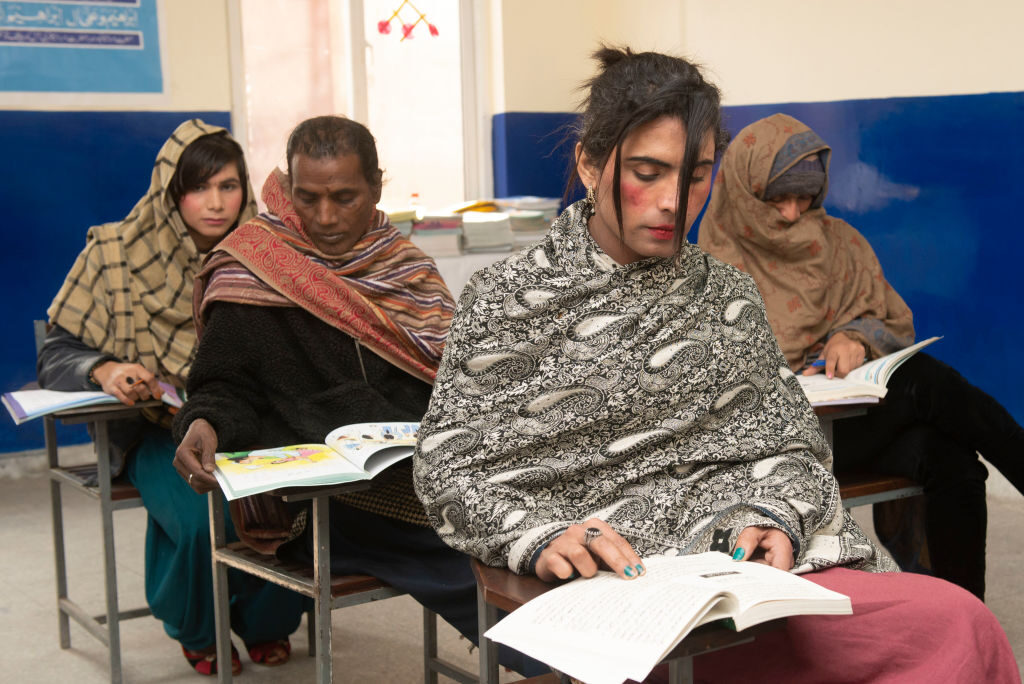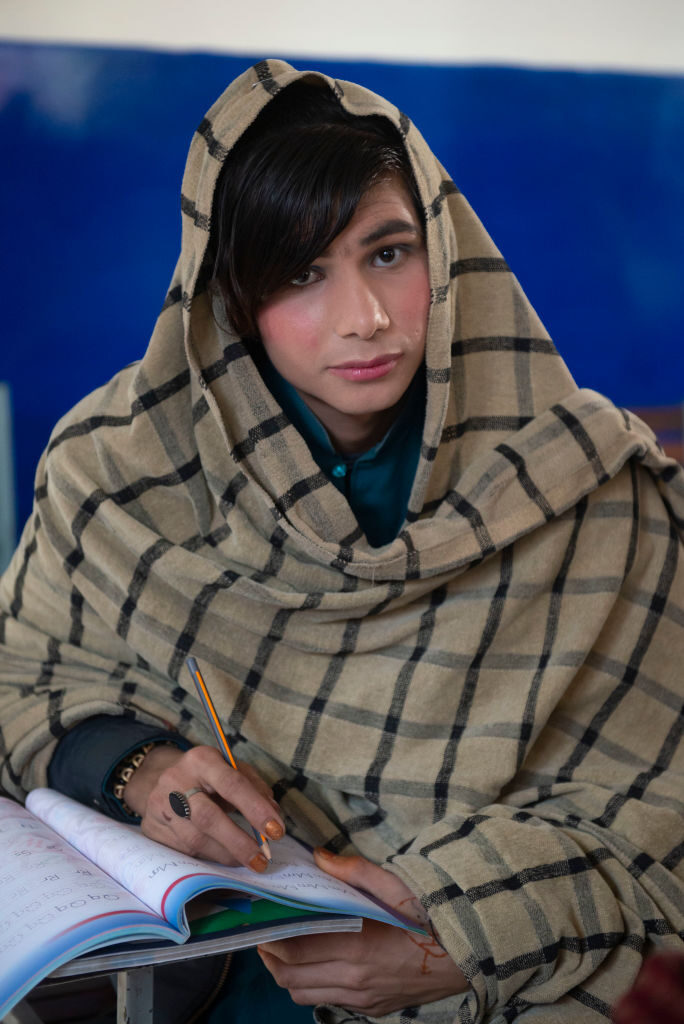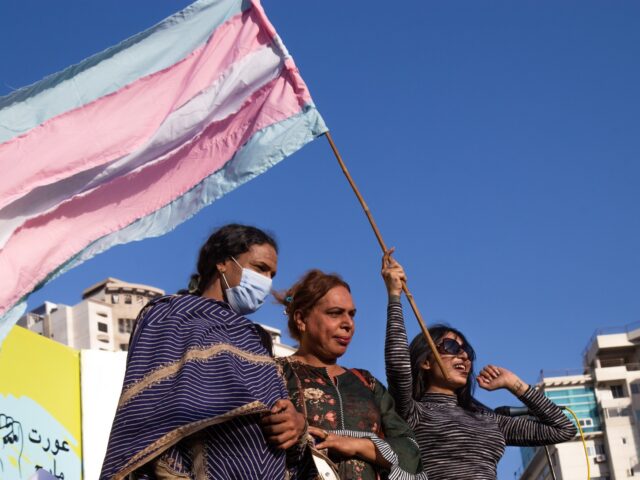A recently published U.S. State Department grant opportunity, accepting applications through Wednesday, offers tens of thousands of dollars to English teachers in Pakistan who specialize in teaching “transgender youth,” in addition to other marginalized communities such as Afghan refugees.
The grant, first posted online in March but unearthed in the trove of State Department notices of funding opportunities by Fox News on Tuesday, focuses on English-language education in the Islamist country as a way to enhance “people-to-people” ties between Pakistanis and Americans. Titled “Pakistan English Language Professional Development for Teachers, Students, and Young Professionals,” the grant offers $500,000 in total to eligible non-profits, non-governmental associations, and other organizations to teach English in the country.
The grant sets aside up to $75,000 to split between eligible applicants who engage in “intensive professional development courses for Pakistani transgender youth from the ages of 13-25” and “intensive professional development courses for Afghan teachers, students, and young professionals residing in Pakistan.” The text of the grant announcement does not specify why Afghans and transgender Pakistanis appear in the same category for purposes of funding.
Offered by the English Language Office of the American embassy in the country, the funding aims to “improve human capacity by creating a better educated and more skillful workforce.”
“This program will increase participants’ English language proficiency, employability, and leadership and critical thinking skills, enabling them to become productive members of their community and society,” the State Department explained.

Transgender people teaching at school in Pakistan. Excluded from society, many transgender people fall out of the education system at an early age. A few months ago, a school opened in Lahore, especially for people of the transgender community, who can catch up on their missed education there. ( Murtaz Ali/picture alliance via Getty Images)
In addition to Afghans and young Pakistani transgender people, the funding is intended for “English-language teachers from non-mainstream institutions” and “novice Pakistani English language teachers.”
“English language programs are a key component of U.S. Government Public Diplomacy efforts in Pakistan, creating valuable opportunities for the Mission to engage key audiences, as well as providing lasting and meaningful professional, educational, and personal opportunities for Pakistan-based program participants,” the grant opportunity text explains. It does not comment on the signaling out of “transgender youth” as a targeted category.
Pakistan is an explicitly Islamist, sharia-ruled country, governed by a constitution that designates Islam the state religion and a penal code that prescribes the death penalty for some forms of “blasphemy.” Pakistan’s law also outlaws “homosexuality,” but protects transgender identity. As in many Islamist regimes, most prominently Iran, transgender identity is partially tolerated as a means of “correcting” homosexuals by turning them “straight.” People who openly identify as transgender can legally marry in Pakistan, but only in biologically opposite-sex unions.
“The government believes that if you are a gay man your soul is that of a woman and you should change your body,” Iranian LGBT activist Shadi Amin explained in a 2020 interview. “We think this is a way to fight the existence of homosexual people because you change their body and you solve the problem.”
Unlike Iran, Pakistan does not force suspected gay or lesbian people into gender reassignment surgery. It has also long recognized a third gender, khawaja sira, an ancient designation indigenous to formerly Mughal regions. The khawaja sira are considered a “third gender” and many do not identify as “transgender,” but a separate identity from the Western understanding of the term. The Pakistani Supreme Court recognized a legal “third gender” in 2012.

A Pakistani transgender person teaching and learning at school. (Murtaz Ali/picture alliance via Getty )
Pakistan passed a law in 2019, the Transgender Persons (Protection of Rights) Act, that allows citizens to legally change their gender and explicitly protects the political rights of self-identified transgender people. Given the gendered nature of sharia, depriving women of many basic political and economic rights in Pakistan, the Transgender Persons (Protection of Rights) Act has complicated the implementation of such laws.
“Pakistan uses the Islamic system of inheritance, which divides assets among descendants based on their gender. Men get twice as much as women,” Voice of America explained in September. “The act stipulated that a person identifying as a trans man would also get twice as much as a trans woman.”
The law has done little to stop acts of mob violence against transgender people and khawaja sira, which is prevalent along with “honor killings” of women, mob lynchings on known Christians, and other forms of community violence. Asian News International (ANI) estimated last year that about 10,000 people in the country of about 231 million identify as transgender or third gender, noting that police often fail to act in the face of violence against them.
“The transgender community faces discrimination and killings regularly that restrict their movements as free citizens of the country,” ANI reported, “these people are devoid of their fundamental human rights including the right to life, right to education and right to have equal job opportunities as well.”
The U.S. State Department grant is one of a large volume of funding opportunities similarly targeted towards LGBT issues. In December, the agency announced a grant for organizations to “counter stigma against the transgender community in India.” Similarly, the State Department announced “freedom of expression” grants in February urging potential beneficiaries to introduce proposals with “a strong gender analysis that looks at the unique needs of women and girls, including lesbian and bisexual women, as well as transgender, intersex, and other gender diverse and gender non-conforming persons.”
Follow Frances Martel on Facebook and Twitter.

COMMENTS
Please let us know if you're having issues with commenting.